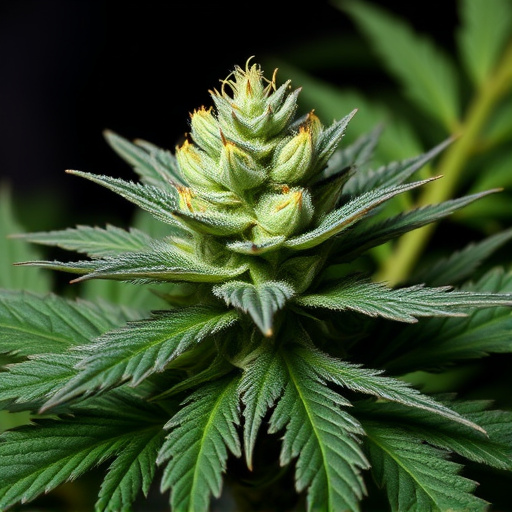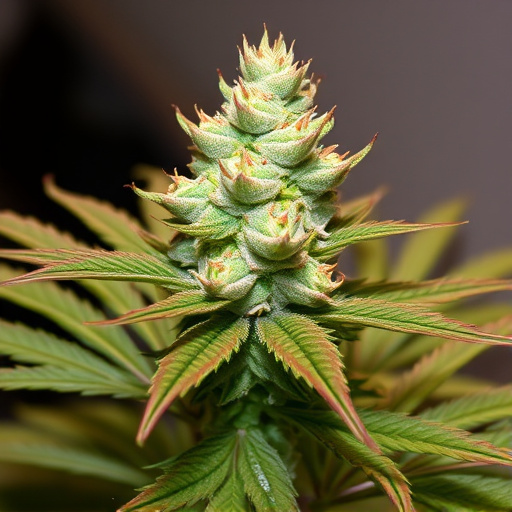Frequent cannabis consumption, especially from the top 20 potent strains, can lead to immediate and short-term effects like altered perception, respiratory issues, dry mouth, red eyes, relaxation/euphoria, appetite changes, memory loss, and concentration difficulty. Excessive use or inexperienced consumption of high-THC strains can exacerbate cognitive problems, particularly in young brains still developing. Smoking cannabis also poses significant respiratory risks due to harmful chemicals, potentially leading to chronic bronchitis and exacerbating lung conditions. Understanding strain properties and practicing safe consumption is vital for mitigating these potential drawbacks.
“Smoking weed may seem like a harmless pastime, but it’s important to understand its potential side effects. This article delves into the short-term and long-term consequences of cannabis consumption, shedding light on everything from cognitive impairment and respiratory issues to mental health risks and cardiovascular dangers.
Furthermore, we explore how different cannabis strains, including the top 20 varieties known for their unique THC, CBD, and terpene profiles, can either mitigate or exacerbate these effects. By understanding these factors, users can make informed decisions regarding their health.”
- Short-Term Effects of Cannabis Consumption
- – Cognitive Impairment: Memory, Focus, and Coordination
- – Respiratory Issues: Increased Risk of Chronic Bronchitis and Infections
Short-Term Effects of Cannabis Consumption

Cannabis consumption, especially among those who indulge in it frequently, can have several immediate and short-term effects. The top 20 cannabis strains known for their potent properties can significantly impact users’ cognitive and physiological functions within a short period. One of the most noticeable short-term effects is altered perception—users may experience heightened senses, distorted time perception, and an enhanced sense of humor. This altered state can lead to increased creativity for some but also potential anxiety or paranoia in others, depending on individual tolerance and strain composition.
Additionally, smoking weed can cause respiratory issues due to the inhalation of smoke, leading to coughing and a higher risk of lung infections. The immediate effects may also include dry mouth, red eyes, and a feeling of relaxation or euphoria. Some users report improved appetite, while others might experience temporary memory loss and difficulty concentrating. These short-term effects can vary widely based on factors like strain potency, consumption method, and individual sensitivity.
– Cognitive Impairment: Memory, Focus, and Coordination

Smoking weed, or using cannabis, can have a significant impact on cognitive functions, particularly in frequent users. One of the most concerning side effects is cognitive impairment, which affects memory, focus, and coordination. Studies have shown that regular marijuana use can lead to difficulties in remembering information and retaining new knowledge—a concern especially for young people whose brains are still developing. This is because cannabis influences the endocannabinoid system, which plays a crucial role in learning, memory, and motor control.
The top 20 cannabis strains, known for their diverse effects, can vary in terms of potency and cannabinoid profiles, impacting users differently. Some strains may be more likely to induce cognitive issues than others. For instance, those with higher levels of THC (tetrahydrocannabinol), the primary psychoactive compound, could potentially exacerbate memory and focus problems, especially when consumed excessively or by inexperienced users. Therefore, understanding the strain’s properties and sticking to safe consumption practices is essential in mitigating potential cognitive impairments associated with smoking weed.
– Respiratory Issues: Increased Risk of Chronic Bronchitis and Infections

Smoking weed, or cannabis, can lead to several respiratory issues due to the harmful chemicals and tar produced during combustion. Regular users are at a higher risk of developing chronic bronchitis, a condition marked by prolonged inflammation and irritation of the airways. This is especially true for those who inhale deeply or smoke frequently, as it increases exposure to these irritants.
Moreover, cannabis smoke can weaken the immune system in the lungs, making individuals more susceptible to respiratory infections. The top 20 cannabis strains, while offering various therapeutic benefits, often have higher levels of THC, which can exacerbate existing lung conditions and compromise pulmonary function over time. It’s crucial for users to be aware of these potential risks, especially if they have pre-existing breathing problems or are inclined towards heavy smoking.
While the top 20 cannabis strains offer various benefits, it’s crucial to remember that smoking weed isn’t without risks. Short-term effects can include cognitive impairment and respiratory issues, as well as an increased vulnerability to chronic bronchitis and infections. Considering these potential side effects, responsible use and awareness of personal limits are essential for anyone consuming cannabis.














